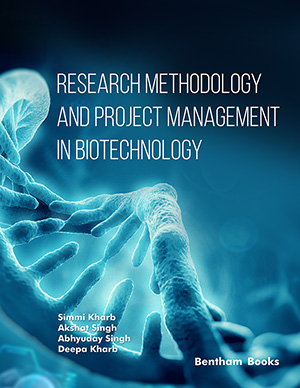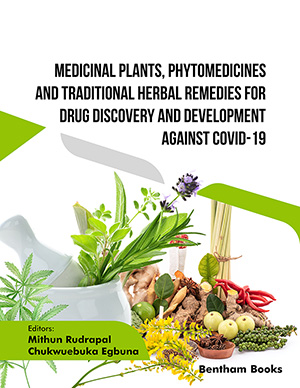
Abstract
Major depressive disorder (MDD) is a common neuropsychiatric challenge that primarily targets young females. MDD as a global disorder has a multifactorial etiology related to the environment and genetic background. A balanced gut microbiota is one of the most important environmental factors involved in human physiological health. The interaction of gut microbiota components and metabolic products with the hypothalamic-pituitary-adrenal system and immune mediators can reverse depression phenotypes in vulnerable individuals. Therefore, abnormalities in the quantitative and qualitative structure of the gut microbiota may lead to the progression of MDD. In this review, we have presented an overview of the bidirectional relationship between gut microbiota and MDD, and the effect of pre-treatments and microbiomebased approaches, such as probiotics, prebiotics, synbiotics, fecal microbiota transplantation, and a new generation of microbial alternatives, on the improvement of unstable clinical conditions caused by MDD.
Keywords: Gut microbiota, major depressive disorder, neuromediators, microbiome, dysbiosis, novel therapeutic strategies.
[http://dx.doi.org/10.3389/fpsyt.2021.645045] [PMID: 34093266]
[http://dx.doi.org/10.1056/NEJMra073096] [PMID: 18172175]
[http://dx.doi.org/10.2147/NDT.S159322] [PMID: 29520144]
[http://dx.doi.org/10.1080/13548506.2013.793369] [PMID: 23651450]
[http://dx.doi.org/10.1007/s10096-019-03746-1] [PMID: 31828683]
[http://dx.doi.org/10.1016/j.cell.2012.01.035] [PMID: 22424233]
[http://dx.doi.org/10.3748/wjg.v21.i29.8787] [PMID: 26269668]
[http://dx.doi.org/10.1038/s41380-022-01456-3] [PMID: 35194166]
[http://dx.doi.org/10.1159/000448957] [PMID: 27884012]
[http://dx.doi.org/10.1111/1751-7915.13479] [PMID: 31448542]
[http://dx.doi.org/10.1186/s12974-020-01961-8] [PMID: 33008395]
[http://dx.doi.org/10.1037/a0038550] [PMID: 25643025]
[http://dx.doi.org/10.1016/j.euroneuro.2015.12.039] [PMID: 26851834]
[http://dx.doi.org/10.1097/00001756-199604260-00011] [PMID: 8817522]
[http://dx.doi.org/10.1177/0269881113499209] [PMID: 23904410]
[http://dx.doi.org/10.1016/j.brainres.2006.04.026] [PMID: 16713589]
[http://dx.doi.org/10.1503/jpn.180209] [PMID: 30807072]
[http://dx.doi.org/10.1186/s13041-017-0306-y] [PMID: 28646910]
[http://dx.doi.org/10.1523/JNEUROSCI.18-18-07394.1998] [PMID: 9736659]
[http://dx.doi.org/10.3390/ijms22169015] [PMID: 34445721]
[http://dx.doi.org/10.1016/j.neubiorev.2012.07.011] [PMID: 22910678]
[http://dx.doi.org/10.1016/j.jad.2014.06.016] [PMID: 25020269]
[http://dx.doi.org/10.1016/j.psychres.2009.03.015] [PMID: 19564048]
[http://dx.doi.org/10.1111/j.1471-4159.2009.06345.x] [PMID: 19694905]
[http://dx.doi.org/10.3389/fncel.2022.923039] [PMID: 35966208]
[http://dx.doi.org/10.1016/j.tins.2011.11.005] [PMID: 22177980]
[http://dx.doi.org/10.1093/ijnp/pyx056] [PMID: 29106542]
[http://dx.doi.org/10.1038/sj.npp.1301574] [PMID: 17851537]
[http://dx.doi.org/10.1016/0014-2999(90)90204-J] [PMID: 2171955]
[http://dx.doi.org/10.1017/S1461145714000662] [PMID: 24925192]
[http://dx.doi.org/10.1016/S0006-3223(99)00230-9] [PMID: 10686270]
[http://dx.doi.org/10.1097/00002826-200105000-00002] [PMID: 11391122]
[http://dx.doi.org/10.1038/sj.mp.4001362] [PMID: 12888801]
[http://dx.doi.org/10.1016/j.euroneuro.2015.04.025] [PMID: 25983019]
[http://dx.doi.org/10.1016/j.neubiorev.2010.10.002] [PMID: 20946914]
[http://dx.doi.org/10.1176/appi.ajp.160.3.577] [PMID: 12611844]
[http://dx.doi.org/10.1038/nature05324] [PMID: 17108970]
[http://dx.doi.org/10.1016/S0140-6736(18)31551-4] [PMID: 30177236]
[http://dx.doi.org/10.1002/cphy.c150015] [PMID: 27065163]
[http://dx.doi.org/10.1016/j.psyneuen.2004.07.001] [PMID: 15471614]
[http://dx.doi.org/10.1016/j.psyneuen.2004.02.002] [PMID: 15219644]
[http://dx.doi.org/10.1001/archgenpsychiatry.2009.50] [PMID: 19487626]
[http://dx.doi.org/10.1016/j.jad.2007.02.017] [PMID: 17467808]
[http://dx.doi.org/10.1016/0165-1781(91)90041-M] [PMID: 1661430]
[http://dx.doi.org/10.1016/S0022-3956(03)00103-1] [PMID: 14757325]
[http://dx.doi.org/10.1111/j.1440-1819.2010.02135.x] [PMID: 20923424]
[http://dx.doi.org/10.4306/pi.2010.7.4.231] [PMID: 21253405]
[http://dx.doi.org/10.1016/j.jad.2006.11.005] [PMID: 17173978]
[http://dx.doi.org/10.1007/s00406-005-0578-6] [PMID: 15809771]
[http://dx.doi.org/10.1210/me.2007-0264] [PMID: 18096693]
[http://dx.doi.org/10.1073/pnas.0800888106] [PMID: 19126684]
[PMID: 23995180]
[http://dx.doi.org/10.1016/j.bbi.2013.08.014] [PMID: 24016864]
[http://dx.doi.org/10.1007/b102345]
[http://dx.doi.org/10.1016/j.bbi.2019.06.015] [PMID: 31195092]
[http://dx.doi.org/10.1097/PSY.0b013e3181907c1b] [PMID: 19188531]
[http://dx.doi.org/10.1503/jpn.180208] [PMID: 31304733]
[http://dx.doi.org/10.1016/j.pnpbp.2004.11.003] [PMID: 15694227]
[http://dx.doi.org/10.1038/sj.mp.4000995] [PMID: 12082564]
[http://dx.doi.org/10.3390/ijms18102226] [PMID: 29064428]
[http://dx.doi.org/10.1007/s11920-000-0062-y] [PMID: 11122950]
[http://dx.doi.org/10.1176/appi.ajp.163.1.109] [PMID: 16390897]
[http://dx.doi.org/10.1007/s11920-010-0150-6] [PMID: 20848240]
[http://dx.doi.org/10.1176/appi.ajp.160.4.636] [PMID: 12668349]
[http://dx.doi.org/10.1038/sj.npp.1300506] [PMID: 15213704]
[http://dx.doi.org/10.1111/j.1600-0447.2008.01225.x] [PMID: 18644006]
[http://dx.doi.org/10.1016/j.biopsych.2010.06.004] [PMID: 20691428]
[http://dx.doi.org/10.3390/genes11111260] [PMID: 33114535]
[http://dx.doi.org/10.3389/fnhum.2014.00720] [PMID: 25309394]
[http://dx.doi.org/10.1007/s12325-020-01272-7] [PMID: 32130662]
[http://dx.doi.org/10.1016/j.jpsychires.2016.07.019] [PMID: 27491067]
[http://dx.doi.org/10.1371/journal.pone.0009836] [PMID: 20352091]
[http://dx.doi.org/10.1038/s41598-021-94481-1] [PMID: 34290352]
[http://dx.doi.org/10.1002/elsc.202300070]
[http://dx.doi.org/10.1016/j.jad.2016.09.012] [PMID: 27744123]
[http://dx.doi.org/10.1016/j.bbi.2015.03.016] [PMID: 25882912]
[http://dx.doi.org/10.3389/fcimb.2022.907239] [PMID: 35899051]
[http://dx.doi.org/10.1186/1471-2180-14-189] [PMID: 25028050]
[http://dx.doi.org/10.1021/acs.jproteome.6b00262] [PMID: 27482843]
[http://dx.doi.org/10.1017/S0033291719003027] [PMID: 31685046]
[http://dx.doi.org/10.1016/j.jad.2020.12.143] [PMID: 33421868]
[http://dx.doi.org/10.1002/brb3.2036] [PMID: 33960717]
[http://dx.doi.org/10.3389/fpsyt.2021.641491] [PMID: 34025474]
[http://dx.doi.org/10.1016/j.jpsychires.2019.03.017] [PMID: 30927646]
[http://dx.doi.org/10.1016/j.bbi.2020.03.026] [PMID: 32229219]
[http://dx.doi.org/10.18632/aging.102775] [PMID: 32040443]
[http://dx.doi.org/10.3389/fpsyt.2021.651536] [PMID: 34589003]
[http://dx.doi.org/10.1002/advs.201902862] [PMID: 32274300]
[http://dx.doi.org/10.3389/fneur.2021.721126] [PMID: 34650506]
[http://dx.doi.org/10.1038/nrn3346] [PMID: 22968153]
[http://dx.doi.org/10.3390/ph11030063] [PMID: 29941795]
[http://dx.doi.org/10.2147/NDT.S243551] [PMID: 32280227]
[http://dx.doi.org/10.1016/j.cell.2017.11.024] [PMID: 29245010]
[http://dx.doi.org/10.1038/nrn2297] [PMID: 18073775]
[http://dx.doi.org/10.1016/j.jad.2021.06.001] [PMID: 34153835]
[http://dx.doi.org/10.1186/2045-5380-4-10] [PMID: 25364500]
[http://dx.doi.org/10.1590/1516-4446-2018-0076] [PMID: 30365672]
[http://dx.doi.org/10.1902/jop.1996.67.10s.1060]
[http://dx.doi.org/10.1016/j.jpsychores.2021.110600] [PMID: 34547662]
[http://dx.doi.org/10.4172/2155-9899.1000423] [PMID: 27478681]
[http://dx.doi.org/10.1016/j.jiph.2022.04.005] [PMID: 35490117]
[http://dx.doi.org/10.1016/j.bbi.2020.07.037] [PMID: 32738287]
[http://dx.doi.org/10.2466/12.13.PR0.107.5.424] [PMID: 21117467]
[http://dx.doi.org/10.1371/journal.pone.0223313] [PMID: 31622369]
[http://dx.doi.org/10.3390/ijms21239234] [PMID: 33287416]
[http://dx.doi.org/10.15698/mic2019.10.693] [PMID: 31646148]
[http://dx.doi.org/10.1016/j.cell.2016.05.041] [PMID: 27259147]
[http://dx.doi.org/10.1016/j.molbrainres.2005.09.002] [PMID: 16219387]
[http://dx.doi.org/10.1016/j.pnpbp.2015.03.010] [PMID: 25818247]
[http://dx.doi.org/10.1371/journal.pone.0103740] [PMID: 25170769]
[http://dx.doi.org/10.3390/nu10121939] [PMID: 30544489]
[http://dx.doi.org/10.3390/metabo12010050] [PMID: 35050172]
[http://dx.doi.org/10.3390/nu14091882] [PMID: 35565849]
[http://dx.doi.org/10.1111/nmo.12378] [PMID: 24888394]
[http://dx.doi.org/10.1038/s41398-020-01038-3] [PMID: 33067412]
[http://dx.doi.org/10.1097/PSY.0000000000000965] [PMID: 34267089]
[http://dx.doi.org/10.1016/j.cmet.2016.05.005] [PMID: 27320064]
[http://dx.doi.org/10.1038/srep34402] [PMID: 27683078]
[http://dx.doi.org/10.1192/bjp.169.6.682] [PMID: 8968624]
[http://dx.doi.org/10.3389/fnins.2022.937906] [PMID: 35937867]
[http://dx.doi.org/10.1007/s12017-020-08625-z] [PMID: 33085065]
[http://dx.doi.org/10.1002/1873-3468.12373] [PMID: 27545319]
[http://dx.doi.org/10.1016/j.bbr.2021.113635] [PMID: 34755640]
[http://dx.doi.org/10.3390/biomedicines10071594] [PMID: 35884899]
[http://dx.doi.org/10.1016/j.intimp.2022.109626] [PMID: 36584576]
[http://dx.doi.org/10.1016/j.psychres.2018.04.025] [PMID: 29677620]
[http://dx.doi.org/10.1111/fcp.12367] [PMID: 29578616]
[http://dx.doi.org/10.1002/jcp.25742] [PMID: 27987324]
[http://dx.doi.org/10.3389/fnins.2018.00483] [PMID: 30072865]
[http://dx.doi.org/10.1016/j.bbi.2014.03.020] [PMID: 24726793]
[http://dx.doi.org/10.1016/0006-8993(95)01415-2] [PMID: 8680860]
[http://dx.doi.org/10.1016/j.jad.2020.03.131] [PMID: 32479325]
[http://dx.doi.org/10.1016/j.bbr.2016.04.032] [PMID: 27102340]
[http://dx.doi.org/10.1016/bs.pmbts.2019.06.010] [PMID: 31601403]
[http://dx.doi.org/10.1186/s12974-022-02492-0] [PMID: 35668399]
[http://dx.doi.org/10.17305/bjbms.2021.6825] [PMID: 35113011]
[http://dx.doi.org/10.3389/fncel.2018.00306] [PMID: 30459555]
[PMID: 18283240]
[http://dx.doi.org/10.3389/fpsyt.2019.00125] [PMID: 30949073]
[http://dx.doi.org/10.1159/000494139] [PMID: 30517939]
[http://dx.doi.org/10.1038/s41598-021-99845-1] [PMID: 34697401]
[http://dx.doi.org/10.1111/j.1574-6976.2009.00204.x] [PMID: 20070374]
[http://dx.doi.org/10.1038/s41366-021-01049-0] [PMID: 35001078]
[http://dx.doi.org/10.1016/j.bbih.2020.100169] [PMID: 34589904]
[http://dx.doi.org/10.3390/nu14235019] [PMID: 36501051]
[http://dx.doi.org/10.3390/medicina59020413] [PMID: 36837614]
[http://dx.doi.org/10.1016/j.bbr.2017.06.012] [PMID: 28624318]
[http://dx.doi.org/10.1016/j.psyneuen.2020.104750] [PMID: 32569990]
[http://dx.doi.org/10.1016/j.neuroscience.2022.06.024] [PMID: 35750110]
[http://dx.doi.org/10.1016/j.biopsych.2019.03.230]
[http://dx.doi.org/10.1016/j.brainresbull.2020.05.008] [PMID: 32470357]
[http://dx.doi.org/10.1128/mBio.01188-18] [PMID: 30181248]
[PMID: 29898625]
[http://dx.doi.org/10.1139/h02-038] [PMID: 12501002]
[http://dx.doi.org/10.1192/bjp.182.3.210] [PMID: 12611783]
[http://dx.doi.org/10.1159/000348587] [PMID: 23942342]
[http://dx.doi.org/10.1371/journal.pone.0160542] [PMID: 27490818]
[http://dx.doi.org/10.1016/j.pnpbp.2011.05.010] [PMID: 21635931]
[http://dx.doi.org/10.1016/j.apmr.2008.02.023] [PMID: 18760149]
[http://dx.doi.org/10.1186/s12937-021-00670-z] [PMID: 33514378]
[http://dx.doi.org/10.1017/S0007114512005235] [PMID: 23360877]
[http://dx.doi.org/10.1016/j.meegid.2020.104268] [PMID: 32126303]
[http://dx.doi.org/10.1016/j.jare.2022.05.003] [PMID: 35618633]
[http://dx.doi.org/10.1016/j.psychres.2019.112568] [PMID: 31563280]
[http://dx.doi.org/10.3389/fnins.2019.01361] [PMID: 32009871]
[http://dx.doi.org/10.1016/j.jad.2017.11.063] [PMID: 29197739]
[http://dx.doi.org/10.1016/j.biopsych.2016.12.031] [PMID: 28242013]
[http://dx.doi.org/10.1016/j.euroneuro.2020.03.006] [PMID: 32241688]
[http://dx.doi.org/10.1007/s00213-014-3810-0] [PMID: 25449699]
[http://dx.doi.org/10.1080/1028415X.2019.1630985] [PMID: 31241002]
[http://dx.doi.org/10.3390/biom11071000] [PMID: 34356624]
[http://dx.doi.org/10.1016/j.phymed.2019.153157] [PMID: 31896054]
[http://dx.doi.org/10.1016/j.clnu.2018.04.010] [PMID: 29731182]
[http://dx.doi.org/10.1016/j.nut.2015.09.003] [PMID: 26706022]
[http://dx.doi.org/10.1016/j.psyneuen.2018.10.010] [PMID: 30388595]
[http://dx.doi.org/10.3390/nu9091021] [PMID: 28914794]
[http://dx.doi.org/10.5812/archneurosci.60507]
[http://dx.doi.org/10.1080/1028415X.2018.1477349] [PMID: 29788823]
[http://dx.doi.org/10.3390/foods11050759] [PMID: 35267392]
[http://dx.doi.org/10.1080/1028415X.2019.1646975] [PMID: 31379269]
[http://dx.doi.org/10.7759/cureus.16503] [PMID: 34430117]
[http://dx.doi.org/10.1038/ajg.2012.251] [PMID: 23160295]
[http://dx.doi.org/10.1186/s40814-021-00882-4] [PMID: 34261526]
[http://dx.doi.org/10.1080/19490976.2017.1293224] [PMID: 28609252]
[http://dx.doi.org/10.1016/j.bbadis.2020.165884] [PMID: 32574836]
[http://dx.doi.org/10.1016/j.jad.2018.04.038] [PMID: 29684865]
[http://dx.doi.org/10.1186/s40168-019-0733-3] [PMID: 31439031]
[http://dx.doi.org/10.1016/j.cca.2019.12.010] [PMID: 31968211]
[http://dx.doi.org/10.1038/s41467-020-19931-2] [PMID: 33311466]
[http://dx.doi.org/10.53388/life2021-0824-338]
[http://dx.doi.org/10.1053/j.gastro.2014.01.004] [PMID: 24412527]
[http://dx.doi.org/10.2196/31439] [PMID: 34550085]
[http://dx.doi.org/10.2196/32234] [PMID: 35060914]
[http://dx.doi.org/10.1002/bies.201800027] [PMID: 30004130]
[http://dx.doi.org/10.1016/j.pnpbp.2021.110257] [PMID: 33497756]
[http://dx.doi.org/10.3389/fnins.2020.582853] [PMID: 33364919]
[PMID: 16575423]
[http://dx.doi.org/10.1016/0031-9384(92)90465-E] [PMID: 1283013]
[http://dx.doi.org/10.1016/S0006-8993(96)00872-4] [PMID: 8973821]
[http://dx.doi.org/10.1097/00008877-199601000-00011] [PMID: 11224400]
[http://dx.doi.org/10.1038/sj.npp.1300320] [PMID: 14872203]
[http://dx.doi.org/10.1016/j.neubiorev.2015.11.012] [PMID: 26657969]



























